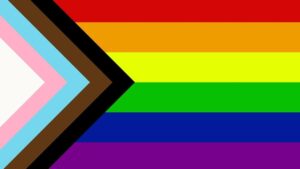LGBTQIA+ Affirmation
Giving
“For everyone born, a place at the table.”
A safe, welcoming and affirming place for lesbian, gay, bisexual, transgender, intersex, queer, asexual and other sexually or gender diverse people (LGBTIQA+)
St Michael’s Uniting Church is a place where everyone is welcome, where the diversity of the human community is celebrated – race, sex, creed, age, nationality, cultural background, ability and disability, sexual orientation, gender identity and intersex status.
LGBTIQA+ people participate in all aspects of the church’s life, including serving in lay and ordained leadership roles. We are committed to social justice to reduce stigma and discrimination and improve the experiences of LGBTQIA+ people in both religious and secular settings.
St Michael’s wedding minister celebrates the marriages of same-gender and gender diverse couples according to the rites of the Uniting Church.
Open and Affirming
St Michael’s is recognised as an Open and Affirming congregation for LGBTQIA+ people by the Uniting Network Australia, the national network for LGBTQIA+ people, families, friends and supporters within the Uniting Church in Australia.
The journey continues as we:
- Provide educational opportunities the Church Council and Congregation to raise awareness of the experiences for education of the congregation on LGBTQIA+ experiences
- Develope a co-design process to make our welcome and affirmation of the LGBTIQA+ community more visible. We are in the process of implementing these changes.
Uniting Network Open and Affirming Project resources – click here.
Pronouns on name badges
Pronouns are words that we use to refer to people when we’re not using their name. Pronouns are pretty useful because it can sometimes feel cumbersome to say someone’s name over and over (“Mark made pasta and Mark put cheese on top and then Mark gave me a bowl and then Mark and I sat at the table and ate”). Using the right pronoun for a person is one of the easiest simplest ways of showing them respect.
Pronouns are a special part of the English language as they are often used to indicate a person’s gender. For many trans people, having people know and use correct and affirming pronouns is an important and validating part of their gender affirmation.
Different types of pronouns
Pronouns are generally grouped by whether they’re ‘gendered’ or ‘gender neutral’.
Gendered pronouns include: he/him/his, she/her/hers
Gender neutral pronouns include: they/them/their and other neo-pronouns (xe/xem/xyr, ze/hir/hirs, ey/em/eir
Some people prefer to avoid pronouns at all – in this case using a person’s name rather than pronouns is important.
Singular gender neutral pronouns are not only grammatically correct, they’ve been around for centuries. Gender neutral pronouns are also a polite and easy way to refer to someone whose gender you’re unsure of.
-Adapted from Transhub, transhub.org.au/pronouns
Wearing a sticker showing your pronouns on your name badge makes it easier for other people to know what pronouns you would like to be referred as. It also helps people who don’t use traditional gendered pronouns feel welcome in a community setting, as they have an easy way to show this.
Wearing a pronouns sticker on your name badge is optional, as some people do not have any pronouns they feel safe displaying or do not want to be referred to using pronouns – but if you are happy being referred to in conversation as “he” or “she” and haven’t put on a pronouns sticker before, a pronouns sticker is just a way of formalising this. Another option for people who do not feel safe displaying their pronouns is to put “ask me” instead.
LGTQIA+ Events at St Michael’s
On Sunday 28th January, we hosted an amazing Midsumma Festival gathering. There was joyful singing, affirming liturgy and unconditional welcome, as people of St Michael’s embraced people, who have been made unwelcome in many churches. The consort of Melbourne sang exquisitely, and St Michael’s LGTQIA+ people prayed prayers of thanksgiving and solidarity and lit rainbow candles. The sharing of blessings, for anyone who wished to recieve one, was a blessing for us all. St Michael’s hospitality team served a beautiful morning tea…beautifully colourful, tasty and welcoming.
At the Midsuma service in 2023, a reporter and a photographer from The Gaurdian attended the service. Their article has been shared many times and was featured in the Uniting Church Assembly weekly newsletter.
If you haven’t seen the article, do read here and share.
We are looking forward to hosting further events. Subscribe to the St Michael’s eNews to keep up-to-date so you don’t miss out on the next event.
The Progress Pride flag
- The original Multi-Coloured Rainbow Flag was designed by artist Gilbert Baker in 1978 in San Francisco
- Transgender Pride Flag (white, pink, and light blue stripes) designed by transgender activist and veteran Monica Helms in 1999
- Artist Daniel Quasar combined both renderings to re-imagine and re-design the Progress Pride Flag in 2018
- The flags black and brown stripes represent marginalized LBGT communities of colour, community members lost to HIV/AIDS, and those currently living with AIDS
- Quasar reshaped the new flag colors into a chevron to represent a need for forward movement
- Quasar wanted to, “shift focus and emphasis to what is important in our current community climate.” Specifically, to draw attention to the need to center and support black and brown queer and trans people, as well as those living with AIDS
from Northwestern University Office of Equity, https://www.northwestern.edu/equity/about/initiatives/progress-pride-flag-initiative.html
The Progress Pride flag has been widely adopted as a symbol of LGBTQIA+ inclusion. Wearing a progress pride sticker on a name badge shows that you are a safe and affirming person to LGBTQIA+ people, and is an important act of solidarity and social justice for and within the LGBTQIA+ community.

